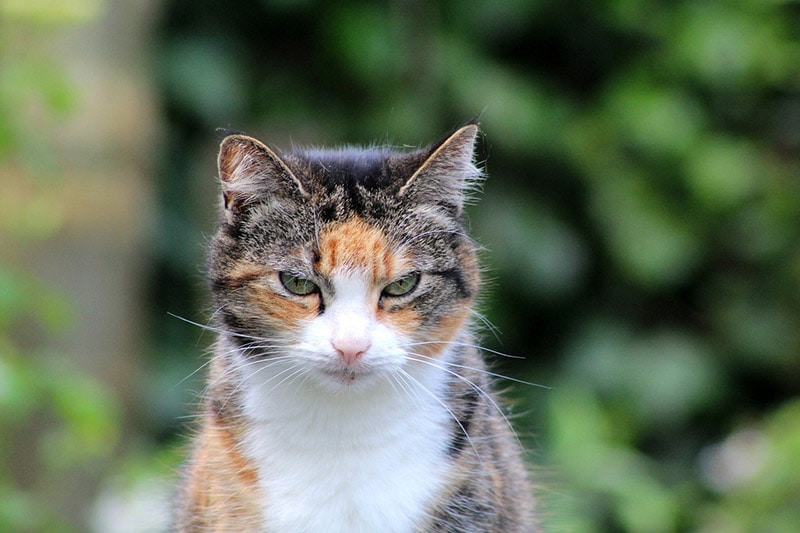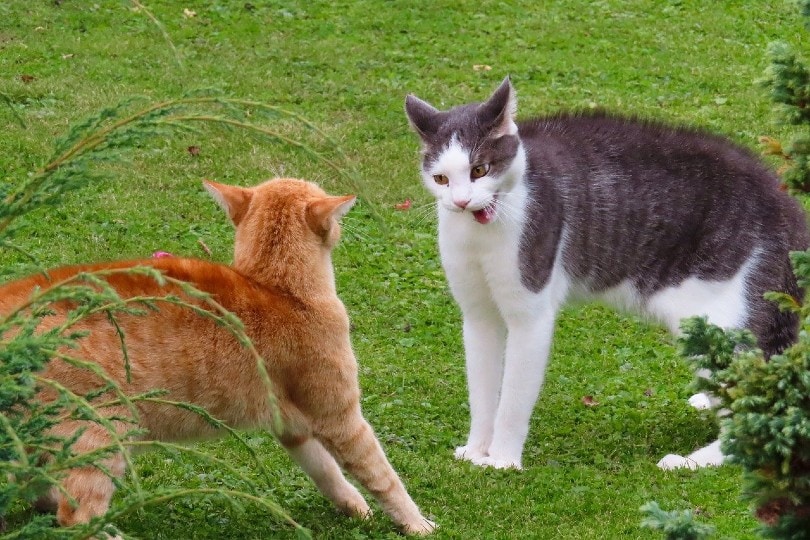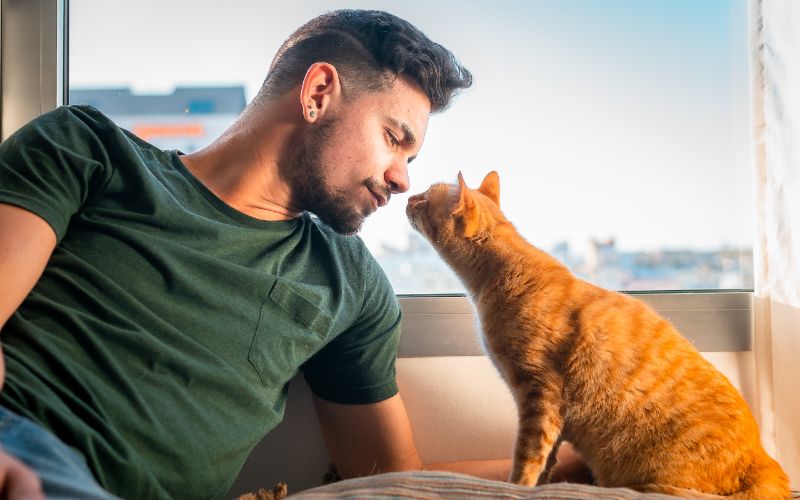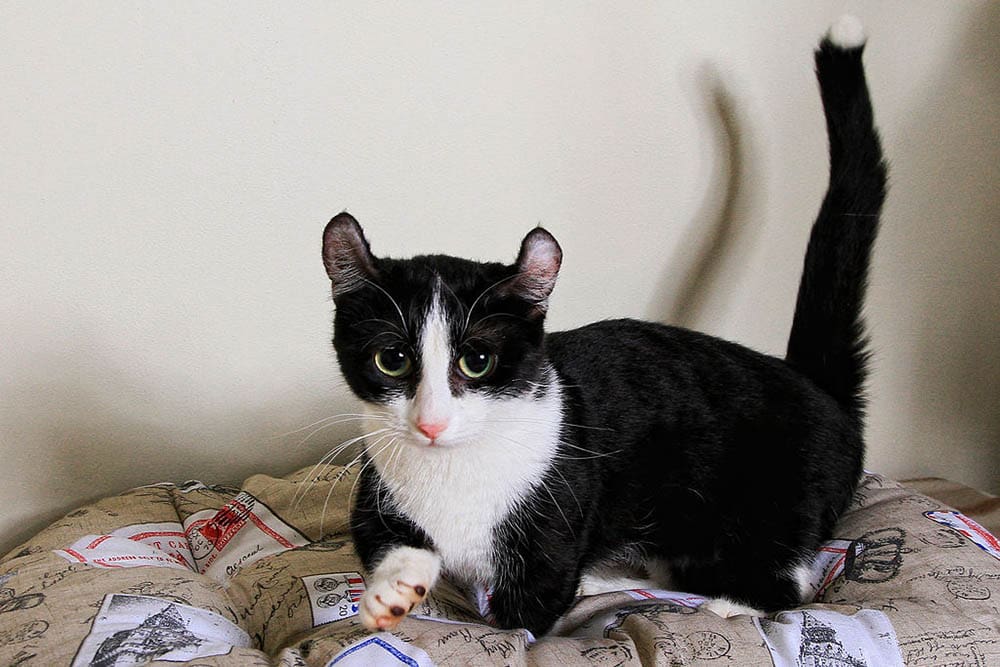Can Cats Sense Fear? Feline Facts & FAQ
Updated on

All cat owners can probably attest that their pets have a knack for picking up on the mood of their owners. They intuitively know when their humans need a little pick-me-up and respond by providing a good kneading session, lap snuggle, or symphony of purrs. But how do our little feline friends respond when we’re feeling a strong, negative emotion such as fear?
Cats cannot identify the fear itself; that is, they might not necessarily know why we’re afraid. But they can absolutely sense when we’re feeling scared.
Keep reading to learn more about cats and their ability to sense strong and negative emotions like fear.
Can Cats Sense Fear?
Yes, cats can sense fear thanks to the highly-tuned senses they’ve amassed over the centuries, which are necessary for survival. Moreover, they can sense it in other cats and humans.

Sensing Fear in Other Cats
Cats can sense fear in each other thanks to their pheromones. Pheromones are chemical signals that many creatures use to communicate. Other animals that communicate this way include elephants, goats, pigs, mice, and even some insects like bees and ants.
Cats are unique because they have several types of pheromones. The most well-known of which is the feline facial pheromone which they use when they rub their faces on objects and people. The feline appeasing pheromone is released by mother cats when they’re nursing their young. It’s believed that this helps to chemically enhance the mother-kitten bonding and assists with maintaining peace in the litter.
Cats that are feeling stressed or afraid can also release fear pheromones. These pheromones can be exuded through the skin, allowing other cats in the area to know the emotional state of the cat in question. They can also release these fear-centric pheromones by emptying their anal sacs.
Sensing Fear in Humans
Cats can sense fear in humans for several reasons.
First, because of their strong sense of smell, cats can sniff out the hormonal changes happening in our bodies when we feel afraid. While cats release pheromones when they’re scared, humans release fear-based hormones.
They may also use body language cues to determine the emotional state of humans. For example, they can recognize your facial expressions and listen to your voice’s tone.
The physiological changes our body goes through during fear can also alert our cats to our mood. For example, some people may sweat more or tremble when afraid.

What Does Science Say?
You already know that cats can sniff out subtle hormonal changes when we’re afraid. But what does scientific research say about cat and human relationships and their ability to sense emotions?
Animals learn to perceive emotions because it’s an integral part of living in social groups. Cats have social relationships with one another but also with humans because they can live in social situations with both. Studies suggest that cats can integrate visual and auditory signals to recognize the emotions of humans and other cats because of their role in the social group. They can adjust their behavior according to the feelings that they’ve perceived.
Another study supports this hypothesis. It suggests that cats can read their owner’s moods simply by looking at the expression on their faces. As a result, cats may try to get closer to their humans and seek their attention when the owner is feeling negative emotions.
How Do Cats React If They Sense Fear in Their Humans?
Your cat’s reaction to fear and other strong emotions will depend entirely on your relationship.
If you’re close, they may become frightened themselves. Studies show that when cats detect that their owners are feeling stressed or anxious, they begin to mirror that emotional state themselves.
One study suggests that cats may start producing oxytocin, also known as the “love hormone,” when it’s near you. This chemical is produced in the brain and makes cats act more loving toward their owners, which may help lower the fear you’re feeling.
A cat’s purr has been shown to lower its owner’s stress level, so your cat may start purring to try to calm you.
If you’re around an unfamiliar cat, it may try to assert dominance if it senses that you’re afraid.
Conclusion
Cats have very finely tuned senses, so it shouldn’t be a surprise that they can sense fear and other emotions in their humans. This intuitive nature is part of what makes owning a cat such a special experience.
Ultimately, for cats, having a clear understanding of their owner’s emotional cues is an important part of living harmoniously with one another. Understanding the emotions of the individuals, be it other cats or humans, in their social group allows them to strengthen their bond and provides a sense of balance that cats need to feel safe in their environment.
Featured Image Credit: Sonja-Kalee, Pixabay










